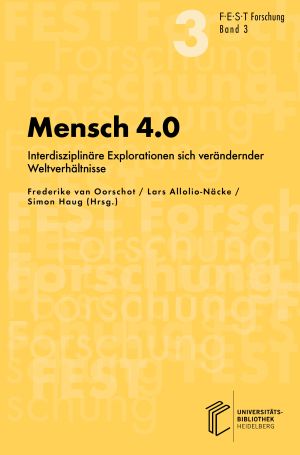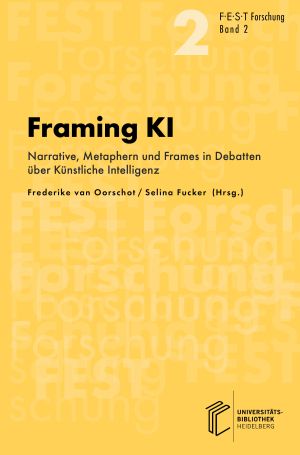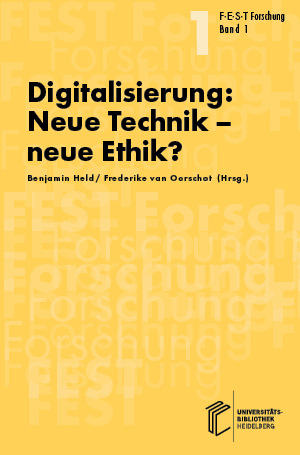FEST Forschung
The series "FEST Forschung" brings together research contributions from the ongoing scientific work of the Protestant Institute for Interdisciplinary Research (FEST) in Heidelberg.
The range of topics in the series reflects the main areas of research at FEST: Peace - Sustainable Development - Religion, Law and Culture - Theology and Natural Science, as well as the professional expertise of the individual scientific researchers. The contributions to the series focus on current social issues and discourses. They provide analyses for the scientific field and give orientation for churches, society and politics.
The scientific quality of the volumes of the series is ensured through a multi-stage review process by the volume and series editors as well as by a scientific advisory board consisting of the members of the scientific board of trustees of FEST (current overview).
Editors
Forschungsstätte der Evangelischen Studiengemeinschaft e.V. (FEST), Heidelberg
Benjamin Held
Ines-Jacqueline Werkner
Magnus Schlette
Philipp Stoellger
A. Katarina Weilert
Published so far
Mensch 4.0: Interdisziplinäre Explorationen sich verändernder Weltverhältnisse
Menschliches Leben ereignet sich und wird gestaltet in kulturell geformten gemeinschaftlichen zeit-räumlichen Zusammenhängen. Diese haben sich im Zuge des Medienwandels der letzten Jahrzehnte tiefgreifend verändert. Dieser Wandel geht mit grundlegenden Veränderungen der Konstitutionsbedingungen des Menschen einher: Das Erleben von Raum, Zeit und Körperlichkeit ist medial vermittelt und wird durch virtuelle Realitäten überlagert. Digitale Medialität und das Leben in digitalanalogen Hybridräumen prägen daher sowohl das Selbsterleben und die Identitätsbildung als auch die Sozialität menschlichen Lebens in der Gegenwart. Diese Veränderungsprozesse im Verständnis von Realität, Zeit, Raum, Körperlichkeit, Identität und Sozialität reflektieren die Beiträge des vorliegenden Bandes in interdisziplinären Perspektiven und fragen nach den Implikationen einer Anthropologie 4.0. Sie dokumentieren einen Konsultationsprozess zum Thema an der FEST Heidelberg.
Framing KI: Narrative, Metaphern und Frames in Debatten über Künstliche Intelligenz
In social, political and media debates, "artificial intelligence" is described as a savior, extension or threat to humans. These descriptions construct social imaginations that frame individual and societal discourse about AI. The volume combines case studies of these frames, narratives and metaphors with a reflection on the associated ethical questions under the task of imagination-sensitive ethics. It thus offers the first interdisciplinary introduction to the imagination of artificial intelligence from media studies, communication studies, linguistics, film studies and media ethics.
Digitalisierung: Neue Technik – neue Ethik: Interdisziplinäre Auseinandersetzung mit den Folgen der digitalen Transformation
New Technologies - new Ethics? The volume, produced in interdisciplinary research at FEST, discusses what is "new" in and through digital technologies in different fields of science and society: What is truly new? Do novel objects, tools, forms of perception, means of cognition, questions, actors, and/or forms of communication emerge? Is something "new" recognizable or do existing questions continue in other medial forms?
The contributions are linked to one another by lines of arguments and fields, which - similar to hashtags - weave together individual statements into threads and thus enable mapping the debate around different concepts or phenomena. Throughout the volume, one can follow these threads:
- #predictability #surveillance #control #freedom #democracy
- #media change #perception #hermeneutics
- #anthropology #ethics #theology
This volume contributes to the necessary debate about the ethical shaping of the digital transformation and wants to stimulate further reflection, research, and discussion about new technologies and new ethics in the context of digitalization.





